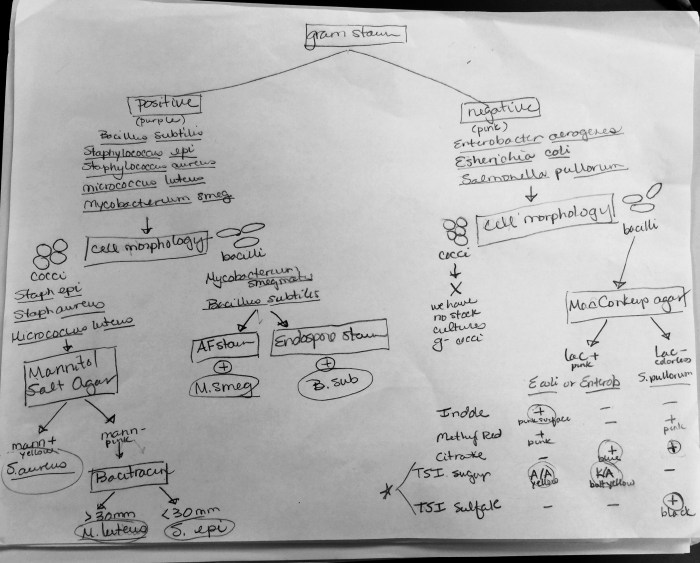The microbiology lab manual answer key serves as an invaluable tool in the realm of microbiology education. It provides a comprehensive guide to the complex concepts and procedures encountered in the laboratory, fostering a deeper understanding and proficiency among students.
This detailed guide explores the essential components of a microbiology lab manual, highlighting the importance of an answer key for effective student learning and assessment. It delves into the various types of answer keys and provides guidelines for creating an effective one.
Introduction
A microbiology lab manual is a comprehensive guide that provides detailed instructions for conducting laboratory experiments in microbiology. It Artikels the necessary materials, procedures, and expected outcomes, ensuring that students can perform experiments safely and effectively. An answer key for a microbiology lab manual is an invaluable resource that provides solutions or guidance for the exercises and questions included in the manual.
Key Components of a Microbiology Lab Manual: Microbiology Lab Manual Answer Key
A typical microbiology lab manual includes several essential sections:
- Introduction: Provides an overview of the course, safety guidelines, and general laboratory techniques.
- Experiments: Detailed instructions for each experiment, including materials, procedures, and expected outcomes.
- Exercises and Questions: Practice problems or discussion questions to reinforce the concepts covered in the experiments.
- Appendices: Supplementary information, such as culture media recipes, safety protocols, and data analysis methods.
Importance of an Answer Key
An answer key for a microbiology lab manual offers several benefits:
- Student Learning: Provides immediate feedback on assignments, allowing students to identify errors and improve their understanding.
- Assessment: Facilitates grading and provides objective measures of student performance.
- Time-Saving: Saves instructors time by providing pre-determined solutions, freeing them to focus on other aspects of teaching.
Types of Answer Keys
Answer keys can vary in their level of detail:
- Full Solutions: Provide complete answers to all questions and exercises.
- Partial Solutions: Offer guidance or hints, allowing students to complete the problems on their own.
- Concept Summaries: Summarize key concepts and provide explanations, without providing specific solutions.
Creating an Effective Answer Key
To design an effective answer key, consider the following guidelines:
- Clarity: Provide clear and concise explanations, using language that is easy to understand.
- Accuracy: Ensure that all solutions are correct and up-to-date with current scientific knowledge.
- Consistency: Maintain a consistent format and style throughout the answer key.
Using an Answer Key Effectively
To use an answer key effectively:
- Learning Tool: Encourage students to use the answer key as a learning tool, to check their understanding and identify areas for improvement.
- Assessment Tool: Use the answer key as an objective tool for grading and providing feedback to students.
Ethical Considerations

Using an answer key raises ethical concerns:
- Plagiarism: Prevent students from plagiarizing answers directly from the key.
- Academic Integrity: Encourage students to use the answer key responsibly, as a supplement to their own learning.
FAQ Resource
What is the purpose of a microbiology lab manual answer key?
A microbiology lab manual answer key provides students with accurate solutions or explanations to the questions and exercises found in the lab manual, helping them to assess their understanding and identify areas for improvement.
What are the different types of answer keys?
Answer keys can vary in format and comprehensiveness, including full solutions, partial solutions, and concept summaries. Full solutions provide step-by-step explanations, while partial solutions offer guidance without revealing the complete answer. Concept summaries provide a concise overview of the key concepts covered in the lab manual.
How can an answer key be used effectively?
An answer key can be used as a valuable learning tool for students to check their understanding, identify misconceptions, and reinforce their knowledge. It can also be used by instructors for assessment purposes, providing a benchmark against which student performance can be evaluated.